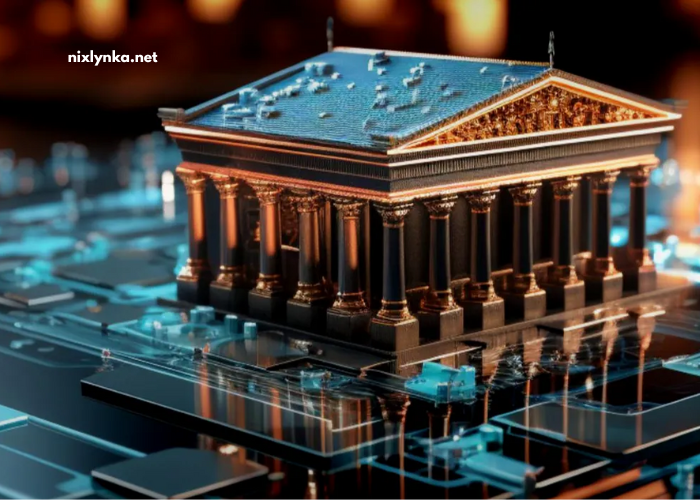As we step into 2025, the pace of technological advancement continues to accelerate, impacting nearly every industry around the globe. The rapid evolution of tools, systems, and methodologies is reshaping how businesses operate, deliver products and services, and interact with customers. From AI and machine learning to blockchain and quantum computing, the latest technology trends are creating vast opportunities while also posing new challenges. In this article, we’ll explore the most influential technology trends that are revolutionizing industries in 2025 and beyond.
The Rise of Artificial Intelligence and Machine Learning
Transforming Business Operations
Artificial Intelligence (AI) and Machine Learning (ML) have been around for years, but in 2025, their capabilities are set to revolutionize industries at a scale never seen before. These technologies are being leveraged to enhance operational efficiency, streamline decision-making processes, and automate repetitive tasks.
In sectors like manufacturing, AI-driven robots and predictive maintenance algorithms are improving production workflows. Businesses can now leverage AI to forecast demand, optimize inventory, and reduce waste. Machine Learning algorithms are enabling real-time data analysis, helping organizations make informed decisions faster than ever before.
AI in Customer Experience
Customer service is also undergoing a transformation with AI-powered chatbots and virtual assistants. Companies are employing AI-driven platforms to offer personalized customer experiences, reducing wait times, improving problem resolution, and fostering better engagement. The integration of AI into customer support channels allows businesses to enhance their responsiveness and satisfaction levels.
Blockchain Technology and its Impact on Security and Transparency
Revolutionizing Finance and Supply Chain Management
Blockchain technology is making significant strides in 2025, offering enhanced security, transparency, and traceability in industries like finance, logistics, and healthcare. The decentralized nature of blockchain ensures that data is immutable and transparent, reducing the risk of fraud and improving accountability.
In the financial sector, blockchain is revolutionizing how transactions are conducted, enabling faster, more secure payments across borders without the need for intermediaries. This technology is also reshaping the world of smart contracts, allowing automated execution of contract terms without the need for human involvement.
In supply chain management, blockchain allows for the seamless tracking of products as they move across various stages of production and distribution. This level of transparency enables businesses to verify product authenticity, track carbon footprints, and enhance the efficiency of their supply chains.
Smart Contracts and Automation
The ability to programmatically enforce contracts through smart contracts is a game changer. Industries such as real estate, insurance, and legal services are utilizing blockchain to automate processes, reduce paperwork, and eliminate the need for third-party intermediaries. This leads to reduced costs and faster execution of agreements.
The Growing Influence of Quantum Computing
The Power to Solve Complex Problems
Quantum computing is no longer a concept of the distant future—it is becoming a transformative force in various industries. By harnessing the principles of quantum mechanics, quantum computers are able to solve complex problems that classical computers struggle to tackle. In 2025, businesses are using quantum computing to enhance their ability to process vast datasets, model intricate systems, and optimize solutions across diverse sectors.
Applications in Pharmaceuticals, Materials Science, and Logistics
In pharmaceuticals, quantum computing is helping researchers identify new drug compounds and accelerate the drug discovery process. Its ability to model molecules at a quantum level allows scientists to simulate and test potential drugs with unparalleled precision.
In materials science, quantum computing is being used to discover new materials with better properties, whether for energy storage, superconductivity, or lightweight manufacturing. The ability to simulate molecular structures is enabling faster prototyping and innovation in industries like aerospace, automotive, and electronics.
Logistics and supply chain management are also benefiting from quantum computing. The ability to optimize routes, inventories, and delivery schedules based on a multitude of factors will enhance overall efficiency and cost-effectiveness in distribution networks.
The Internet of Things (IoT) and Industry 4.0
Connecting the World Through Smart Devices
In 2025, the Internet of Things (IoT) is expected to become an even more integral part of our daily lives and business operations. IoT refers to the network of connected devices that communicate and exchange data in real time. Smart sensors, wearables, smart homes, and connected vehicles are all part of this expansive ecosystem, generating a wealth of data that can be analyzed for valuable insights.
In industrial sectors, IoT is playing a crucial role in Industry 4.0, the fourth industrial revolution. Smart factories are incorporating IoT sensors to monitor machine performance, detect anomalies, and trigger automated responses. This leads to higher production efficiency, fewer downtimes, and optimized resource management.
Real-Time Data Analytics for Better Decision-Making
As IoT devices generate vast amounts of real-time data, businesses are leveraging advanced analytics tools to gain actionable insights. By analyzing patterns and trends, organizations can make informed decisions that lead to cost savings, enhanced productivity, and a more personalized customer experience.
In sectors like healthcare, IoT devices are being used to monitor patients remotely, allowing for early diagnosis and personalized care. Wearable devices track vital signs and send data to healthcare professionals, enabling them to intervene before conditions become critical.
5G Technology and its Impact on Connectivity
Revolutionizing Communication and Connectivity
5G, the fifth generation of mobile network technology, is set to revolutionize industries by offering faster data speeds, lower latency, and enhanced connectivity. In 2025, the widespread deployment of 5G networks is enabling real-time communication and collaboration across industries, breaking down geographical barriers and unlocking new opportunities for innovation.
In the automotive sector, 5G is paving the way for autonomous vehicles by facilitating communication between vehicles, traffic infrastructure, and cloud systems. This enables faster decision-making, smoother traffic flow, and improved safety features.
5G also plays a crucial role in industries like healthcare, where telemedicine and remote surgeries can be performed with minimal delay. The ability to transmit large volumes of medical data in real time enhances the ability to diagnose and treat patients more efficiently.
Smart Cities and IoT Integration
As cities become smarter, 5G technology serves as the backbone for a network of interconnected devices that monitor and optimize urban services. Smart traffic lights, waste management systems, and energy grids rely on 5G to improve efficiency, reduce costs, and create a more sustainable urban environment.
Augmented Reality (AR) and Virtual Reality (VR)
Transforming Consumer and Industrial Experiences
In 2025, Augmented Reality (AR) and Virtual Reality (VR) are set to revolutionize consumer experiences across industries like retail, entertainment, education, and healthcare. These immersive technologies are not only enhancing the way we interact with digital content but are also providing unique solutions to real-world problems.
In retail, AR is enabling virtual try-on experiences, allowing customers to see how products will look on them before making a purchase. VR is transforming the way consumers experience entertainment, offering fully immersive gaming and virtual tourism experiences.
In healthcare, VR is being used to train surgeons in a risk-free environment, while AR is helping doctors visualize and interact with patient data during procedures. These technologies are improving the accuracy of medical procedures and enhancing the training of healthcare professionals.
Applications in Manufacturing and Education
In manufacturing, AR is being used for remote assistance and maintenance. Technicians can use AR glasses to receive real-time instructions and diagnostic data, enabling them to fix machinery more efficiently. In education, AR and VR are providing immersive learning experiences that engage students and enhance understanding of complex subjects.
Autonomous Systems and Robotics
Transforming Industries with Automation
Autonomous systems and robotics are rapidly advancing, reshaping industries like logistics, manufacturing, and healthcare. By 2025, robots will be performing more complex tasks that were previously reserved for humans. These advancements are driving greater productivity, reducing human error, and improving safety.
In logistics, autonomous delivery vehicles and drones are being used to transport goods, reducing delivery times and costs. Autonomous robots are also being used in warehouses to manage inventory, sort packages, and assist with order fulfillment.
In manufacturing, robots are playing an increasingly critical role in assembly lines, working alongside human employees to improve speed, accuracy, and safety. In healthcare, autonomous systems are being used to assist with surgeries and provide care to elderly or disabled individuals.
Conclusion: The Future of Technology and Industry
As we move further into 2025, these technology trends are only the beginning of a new era of innovation. Artificial Intelligence, Blockchain, Quantum Computing, IoT, 5G, and other emerging technologies are set to redefine industries, creating new business models, opportunities, and ways of working.
For businesses and organizations, staying on top of these trends is not just a competitive advantage—it is essential to future-proof operations, deliver superior customer experiences, and drive sustainable growth. While these advancements bring exciting potential, they also require careful implementation and adaptation to ensure they deliver tangible value.
The convergence of these technologies will continue to shape the way industries evolve, bringing about unprecedented levels of efficiency, productivity, and innovation. In 2025 and beyond, the key to success will lie in embracing these technological shifts and leveraging them to create transformative change.





